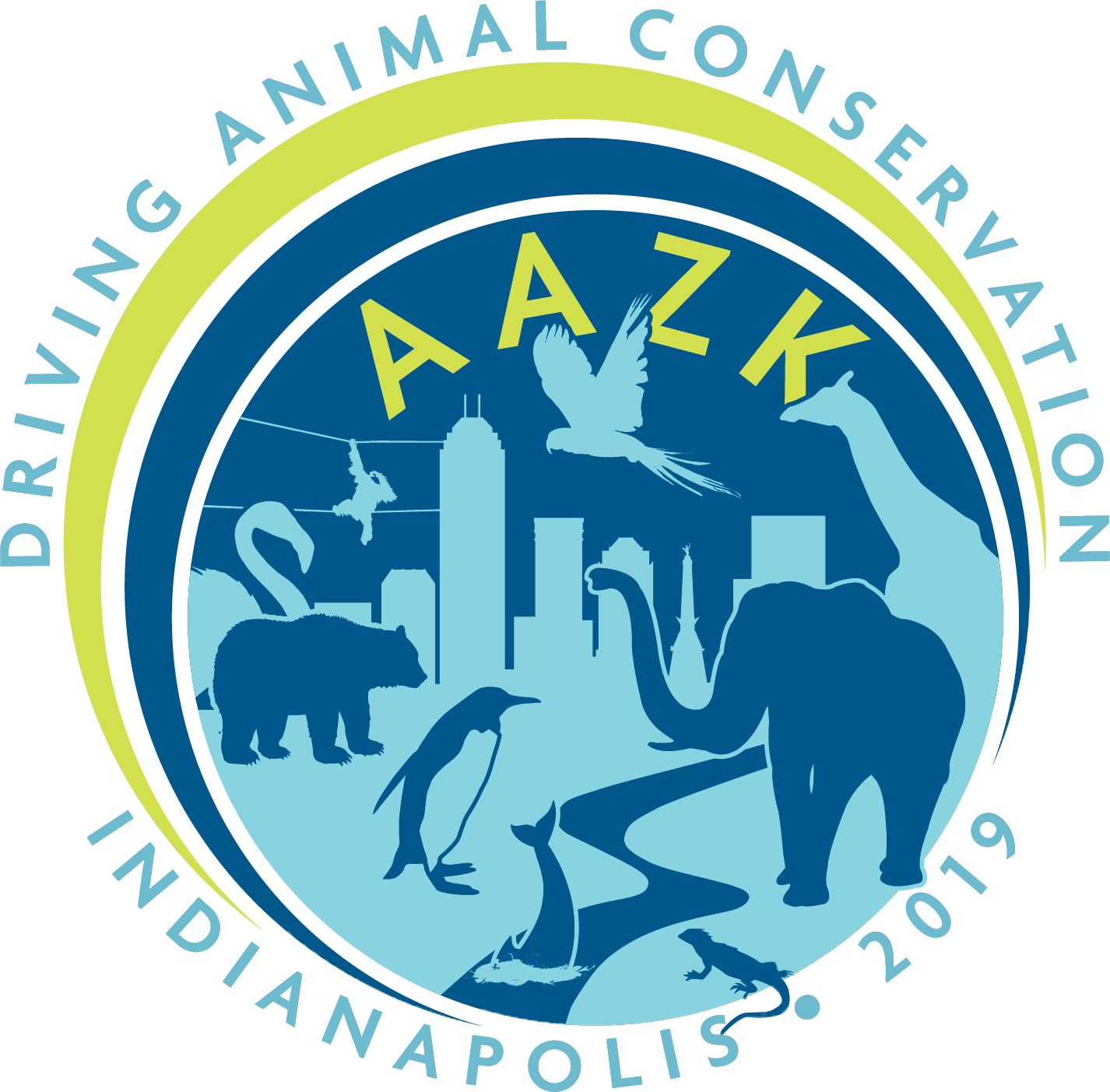Conservation Papers Abstracts
Indonesian Rhinos: Bowling for Rhinos is Conserving the Most Critically Endangered Mammals on Earth
CeCe Seiffert, International Rhino Foundation
Monday August 19th, 10:30am – 11:00am
Once found roaming from Afghanistan all the way through the Indonesian archipelago, Sumatran and Javan rhinos are now found only in Indonesia and are likely the world’s most critically endangered land mammals. Since 1996, AAZK’s signature Bowling for Rhinos program has helped to conserve these two incredible species. Shy, secretive rainforest dwellers, Javan rhinos now number 67 animals in one site, Ujung Kulon National Park. Javan rhinos were declared extinct on mainland Asia when the last rhino was poached in Vietnam in 2010. Sumatran rhinos number fewer than 80 individuals spread across 10 small sub-populations. The Sumatran rhino was declared extinct in the wild in Malaysia in 2016. Sumatran rhinos have had a precipitous decline of more than 70% population loss over the last 20 years, but not in the areas in which AAZK supports their conservation. New plans for both species include bold actions designed to reverse their decline and maximize the potential for population growth. This report provides an update on these plans, as well as our progress on breeding the Sumatran rhino in captivity. AAZK support for the Indonesian Rhino Protection Units, the backbone of the two species’ protection, has never been more critical. AAZK’s hard work to raise funds through Bowling for Rhinos ensures that AAZK plays a critical role in their long-term survival and recovery.
Action for Cheetahs in Kenya: A Decade of Cheetah Conservation
Mary Wykstra, Action for Cheetahs
Monday August 18th, 11:00am – 11:30am
AAZK Bowling for Rhinos initiated its support for Action for Cheetahs in Kenya (ACK) in 2010, just after the registration of the Carnivores, Livelihoods and Landscapes organization in Kenya. Although BFR funds assisted primarily in development of our field site in northern Samburu, cheetah studies have encompassed range wide monitoring and conflict mitigation. Local and international students and volunteers provide our staff with opportunities to build skills in conservation management at a community level. This presentation will update AAZK members on the status of projects and the benefits of the BFR funding for long-term cheetah conservation in collaboration with other local and international partners.
Mobile Veterinary Response in Kenya: Dr. Mathew Mutinda, Kenya Wildlife Service veterinarian on Lewa Wildlife Conservancy
Dr. Mathew Mutinda, Lewa Wildlife Conservancy
Monday August 19th, 11:30am – 12:00pm
The Mountain Region Wildlife Mobile Veterinary Unit (MVU) is a partnership between Kenya Wildlife Service and Lewa Wildlife Conservancy (www.lewa.org) in northern Kenya. The MVU provides remote veterinary care and emergency response to all wildlife in need in northern Kenya. This region is a major hotspot for wildlife and hosts at least 50% of the country’s 1,400 rhinos, over 7,500 of the country’s 33,000 elephants, 95% of the world’s 2,800 Grevy’s zebra and is also home to a major population of Kenya’s 2,000 lions.
The MVU prioritizes threatened wildlife species, such as black and white rhinos, elephants, Grevy’s zebras, wild dogs, hirolas, and mountain bongos, in addition to treating more common wildlife species. MVU services include:
- Clinical interventions for intra-specific injuries, human-wildlife conflict incidents, poaching issues, etc.
- Disease surveillance and associated management interventions
- Translocations to establish new wildlife populations – especially rhinos and to mitigate human-wildlife conflict
- Rescue and rehabilitation of orphaned wildlife
- Training of new veterinarians through a Wildlife Apprentice Program.
With support from the San Diego Zoo and Chester Zoo, the team is now working to establish a regional wildlife diagnostics and endocrinology laboratory based at Lewa Wildlife Conservancy to diagnose and proactively manage wildlife diseases using evidence-based interventions.
Bowling for Rhinos 2019 Program Update
Kim Janke, American Association of Zoo Keepers
Monday August 19th, 12:00pm – 12:30pm
2018 was another great year for the Bowling for Rhinos Program. Thanks to the amazing efforts of 90 chapters you helped raise $580,900.22 for conservation efforts surrounding rhinos, cheetahs, and their habitats! Our goal for 2018 was to have 100% chapter participation, even if just in the form of a small donation but unfortunately we fell short. Looking forward to this year, our goal remains the same: 100% participation from all 113 AAZK Chapters internationally. The focus of the BFR Program Team has been on finding ways to promote involvement and encourage chapters to grow their events. 2019 will bring the start of the mentorship program where chapters can share their challenges and successes with others so that we can all learn and succeed. Work with our amazing conservation partners has brought many successes and we can all be proud of our support and relationships with these amazing organizations. Next year, 2020, will bring some exciting changes to the way that AAZK recognizes and rewards chapters with the opportunity to travel to Kenya with Lewa Wildlife Conservancy and Indonesia with International Rhino Foundation. These changes will broaden the reach that these impactful experiences have on our membership and enable AAZK to better recognize the achievements of all chapters. Plan to attend the BFR Summit after the Conservation Rally to share your thoughts and ideas on how we can best reach our goals and smash our fundraising totals this year and each year moving forward!
